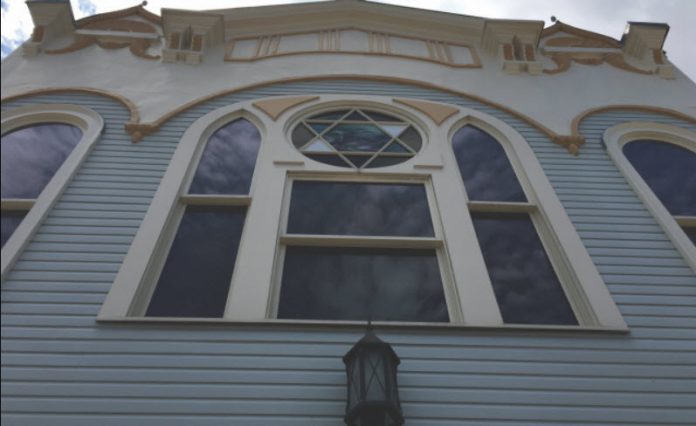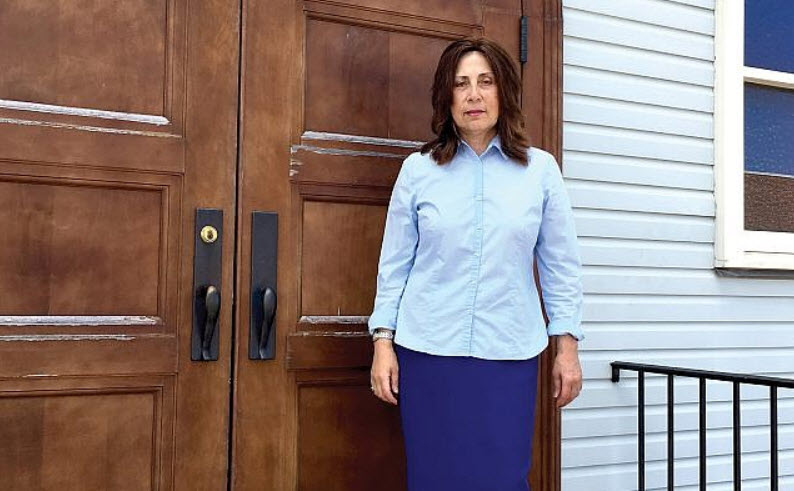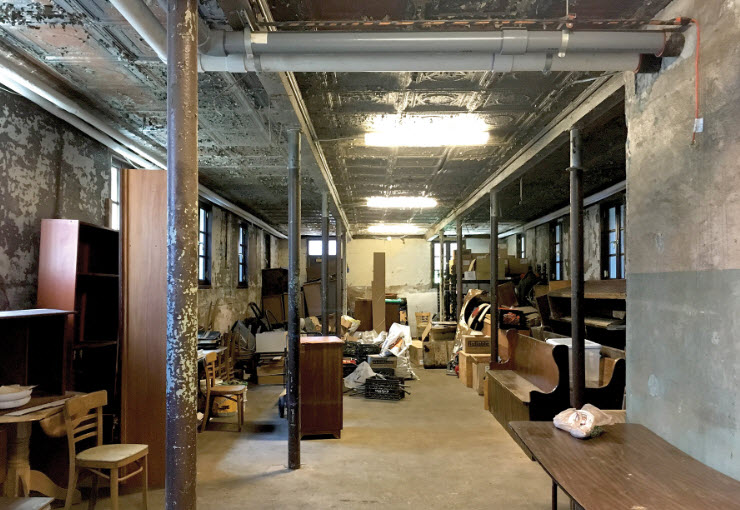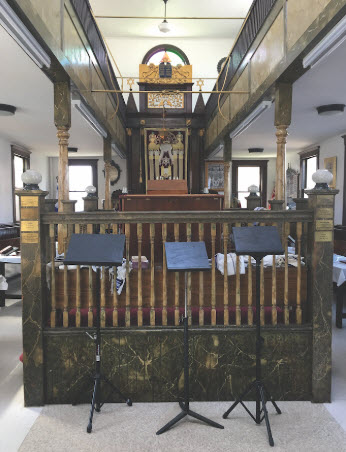
Bukharian’s synagogue 15-year fight over cables taking a toll.
Esther and Rabbi Amnun Khaimov, the leaders of Congregation Tifereth Israel in Corona, Queens, thought they were doing a “chesed,” an act of kindness, when they agreed to let Verizon install telecommunications equipment on their property.
But after more than 15 years of waiting for the telecom giant to remove the equipment, countless hours spent on the phone with the company and expensive lawyers’ fees, the Khaimovs wish they had never been so kind.
The couple alleges that the installation of Verizon equipment on their property has caused major damage to the Corona synagogue’s social hall, wiping out their community’s family programming and social services, and eventually leading to the decline of the community. Most of the remaining members now live in other parts of Queens.
“We fell in love with this synagogue,” said Esther Khaimov. “People trusted us and people loved this synagogue.”

Back in 2000, when Verizon originally installed the equipment, the small Bukharian congregation was growing with the Khaimovs at the helm. Esther Khaimov, who immigrated to the United States from Tajikistan by way of Israel in 1994, and Rabbi Khaimov, who came to the United States from Uzbekistan in 1995, had been living in Lefrak City, a Queens enclave of Bukharian Jews, most of whom had immigrated from Central Asia during the Glasnost period. In 1998 or 1999, the Khaimovs discovered Congregation Tifereth Israel, believed to be the oldest synagogue in Queens, which at the time had a dwindling Ashkenazi membership, and saw an opportunity. They quickly transformed it into the center of the growing Bukharian community in Corona, establishing social services, a food pantry and youth programming for the community. At its height, the synagogue had 240 members; it has since dwindled to 50. Most of the Bukharian community lives in Forest Hills.

The synagogue building, a wooden structure built in 1911 and named a New York City Landmark in 2008, is a testament to its dual legacy as an Ashkenazi and Bukharian synagogue, with Russian-language prayer books to serve the Russian-speaking community stacked under decades-old plaques commemorating its former Ashkenazi members.
“It’s very significant as the oldest surviving synagogue in Queens; it’s historically, culturally, architecturally significant,” said Ann Friedman, director of the Sacred Sites Program at the New York Landmarks Conservancy. “For it to continue as a viable synagogue and community institution, they need to continue the renovations.”
The synagogue’s involvement with Verizon began in 1999, when a Verizon worker approached the synagogue custodian for permission to install cables on the property. Esther Khaimov says the custodian was never authorized to give that permission, though she later signed a license herself in 2000 allowing Verizon to use the property.
Verizon installed cables and utility boxes on the property, destroying pavement and repaving a walkway between the synagogue building and the second building on the property. Around the same time, the synagogue decided to renovate the basement of the synagogue building and, in the process, discovered termite damage in the building’s original wood paneling and floors. The work revealed extensive water damage in the areas adjacent to where Verizon’s cables had been installed, leading the synagogue to believe that the Verizon cables were responsible.
In an emailed statement to The Jewish Week, a Verizon spokesperson said the company hired an independent engineer to conduct an investigation but did not find a link between Verizon’s underground equipment and the water damage in the synagogue basement.

The presence of the Verizon cables also meant that the synagogue could not obtain building permits or find a contractor who would take the job without Verizon’s cooperation. Esther Khaimov called Verizon repeatedly over the years to try to find the right department, eventually filing a complaint with New York City’s 311, Verizon’s business office and its Government Affairs office, to no avail. In an email sent last week to Yisroel Schulman, the attorney representing the synagogue, Verizon’s attorneys offered the synagogue $5,000 on condition that the synagogue would drop all damages claims against Verizon. The synagogue did not take the offer, insisting that the cost of repairing the property damage is far more than that sum.
“This has been an issue of Verizon taking advantage of the initial kindness of a Bukharian synagogue,” said Schulman.
As a historic building, the synagogue has been awarded several grants over the years, including one from the Queens Borough President’s Office. Esther Khaimov said that because of Verizon’s lack of cooperation she was unable to use that grant for its intended purpose, renovating the basement, adding that the synagogue has missed out on a number of other funding opportunities because of the ongoing situation.
Esther Khaimov hopes the synagogue might recoup some of the damages and begin to recover from its messy fight with Verizon. Bela Yakubova, a member of the synagogue since she came to Corona from Uzbekistan in 1999 and who recently moved to Long Island, agreed, saying that a renovated basement would enable the synagogue’s members to return to commemorate yahrtzeit’s and family events. “It’s very important to keep this synagogue active,” said Yakubova, ticking off all the services it offered. “It was social work, it was food pantry, it was clothes for free. It was very helpful when people just came to this country.”
“We don’t know why Hashem wants us to be here,” said Esther Khaimov, but she believes it is her mission to stay here and fight for her community.
“We had good intentions, we did you a favor, so be a human being,” Esther Khaimov said with frustration, as if speaking directly to Verizon. “Behave like a human being.”
credit to jewishweek.timesofisrael.com









